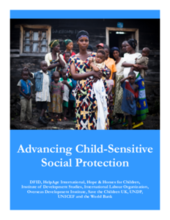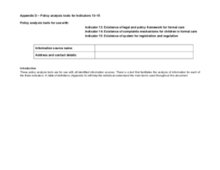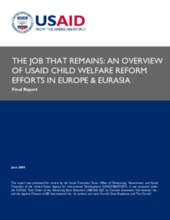Displaying 321 - 330 of 454
Explores the negative impacts of loss of parental care on children. Advocates for reform for children based on assertion that failure to keep children in families, out of residential institutions and off the streets, will be another barrier to the achievement of the Millennium Development Goals
Despite its importance to the poorest in society, the social welfare sector in Malawi has not been performing well. Recognising this, the Principal Secretary (PS) in the Ministry of Gender, Children and Community Development (MoGCCD) requested support from United Nations Children’s Fund (UNICEF) and United States Agency for International Development (USAID), who have taken a new approach: supporting the Government of Malawi (GoM) to build a better social welfare system starting at the top, within the Ministry.
First briefing paper of series, aims to share good practices and information exchange on preparation for leaving care and after care support
Joint statement among UN agencies and NGO partners to build greater consensus on the importance of child-sensitive social protection.
Policy/analysis tools for manual to assist countries in strengthening their information system around children in formal care through data collection around 15 global indicators
Short video illustrating the ways social protection safeguards children and their families – including those affected by AIDS – at every level from communities to entire countries and beyond.
This study uses recent data from published studies in sub-Saharan Africa to illustrate deficits and document community responses for children who have lost parents to the HIV/AIDS pandemic.
This study uses recent data from published studies in sub-Saharan Africa to illustrate deficits and document community responses for children who have lost parents to the HIV/AIDS pandemic.
This joint statement aims to build greater consensus on the importance of child-sensitive social protection.
Examined the eight countries in which USAID supported significant child welfare reform programs: Armenia, Azerbaijan, Belarus, Bosnia-Herzegovina, Georgia, Romania, Russia, and Ukraine. The paper discusses population issues, the current system of child welfare, USAID-funded activities, lessons learned, and best practices.







